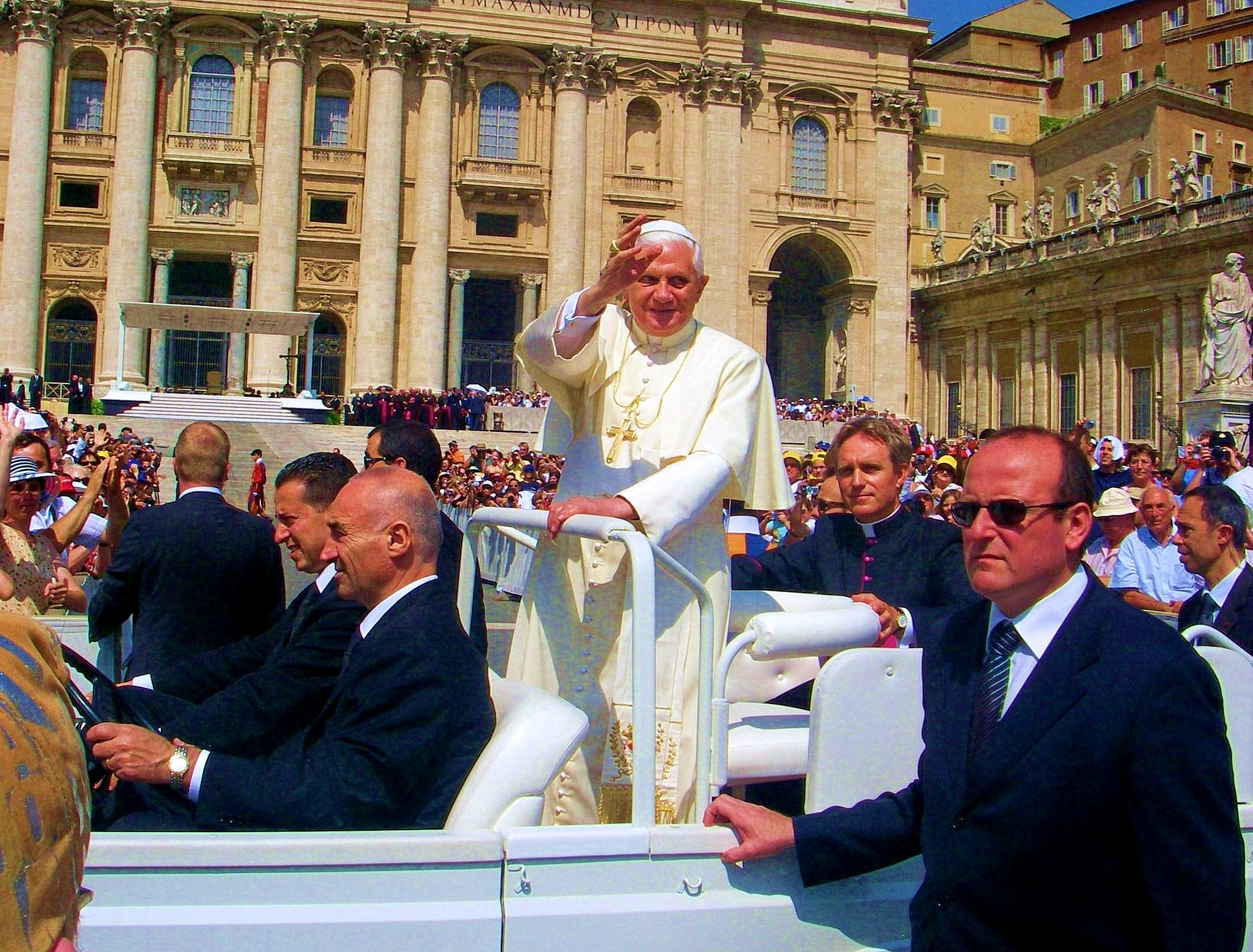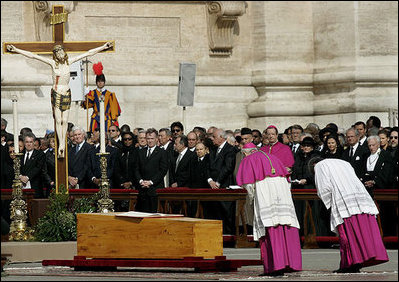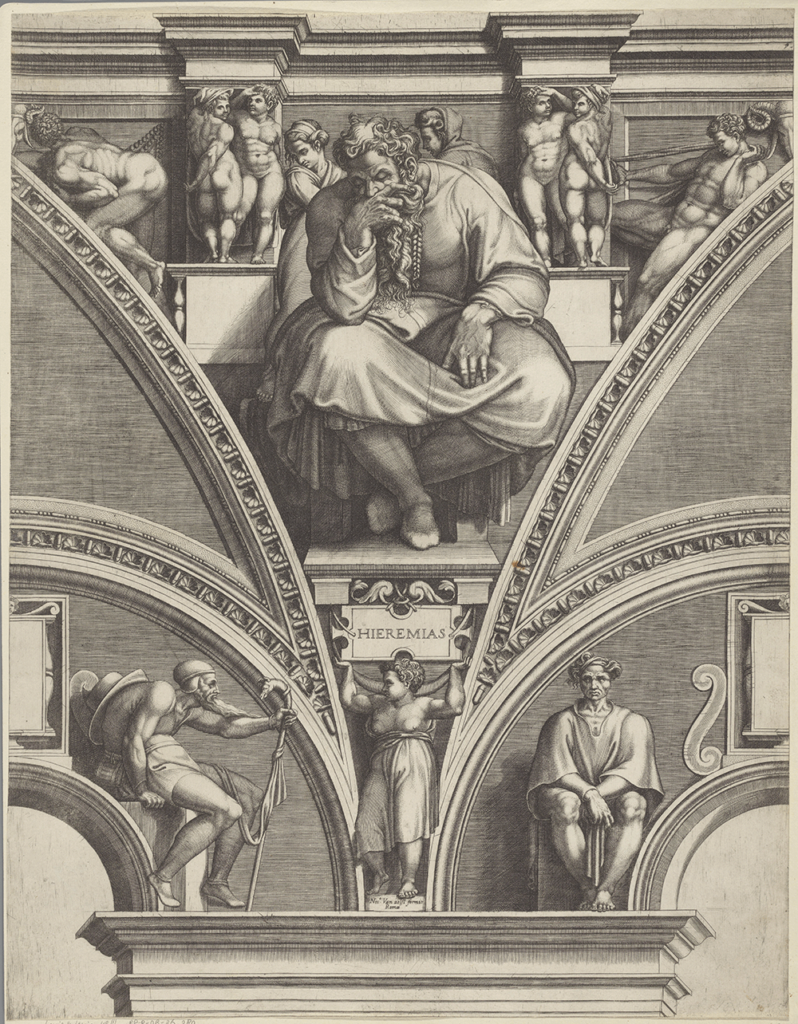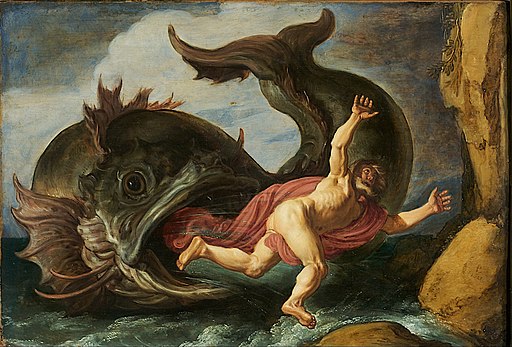
Yesterday, sometime around 9 am CET, our pope emeritus, Pope Benedict XVI, was called home to his eternal reward. At 95 and after years of faithful service, he has earned his rest – but we here on earth are poorer for his passing. As many have remarked, he is the last of a generation, bridging the gap between the pre and post conciliar Church with fidelity, wisdom, and grace. Though his contributions will continue to bear fruit in the Body of Christ on earth – and we will undoubtedly benefit from his intercession in union with the saints & angels in heaven – we are nonetheless poorer for his passing. He will be deeply missed.

(image courtesy of Wikimedia Commons)
I was born under the papacy of Pope Saint John Paul II. He led the Church for so long that it seemed like he had always been and always would be around. When he died in 2005, the world shook – and me with it. Universally beloved, it seemed impossible that such a force for joyful faith could be gone. At Mundelein seminary at the time, as students and faculty alike immediately gathered together to offer Mass, praying as one. Catholics – and non-Catholics! – were united across ecclesial divisions in a common purpose: to thank God for and intercede on behalf of a beloved man who so wonderfully lived his first papal message of ‘be not afraid!’
Leading us all in our grief and our prayer was then-Cardinal Ratzinger. It made perfect sense, not only because of his prominence in the Church (having served as Prefect of the Congregation for the Doctrine of the Faith since 1981) but because of his deep personal friendship with Pope Saint John Paul II. In addition to carrying his own grief at the loss of his friend, Cardinal Ratzinger stood before the world and led us through that sad goodbye. His homily was an inspiration, but it was his presence that made all the difference. Though he had been known as a staunch proponent of the faith – often compared to a bulldog by fans & critics alike – that day his fatherly heart was revealed.
So it was no surprise that when the conclave gathered for the prayerful discernment and selection of a new pope, he was tapped by his brother cardinals to succeed his friend after just one day of deliberations. On April 19, 2005, Cardinal Ratzinger became Pope Benedict XVI. I remember the announcement well, with many of my classmates gathered around the television in the rec hall beneath the chapel – a chapel, by the way, where the community Mass was being offered. I’m told that our cheering disrupted the Mass such that the rector simply paused his prayers, remarking that ‘I guess we have a new pope!’ and patiently waiting for the name to be shared with him – which he included in Eucharistic prayer of the Mass we had interrupted.
Pope Benedict XVI will always hold a special place in my heart. His faithful teaching – especially around the liturgy & worship of our Lord – continues to inform my practice of the faith and the work of my priesthood. He was a gift to the Church and we have been blessed by his generous lifetime of ministry. Thankful for all that he did and who he was, we commend him to the Lord, whom he served with such care.
Saints of God come to his aid!
Hasten to meet him, angels of the Lord!
R. Receive his soul and present him to God the Most High.
May Christ, who called you, take you to himself;
may angels lead you to the bosom of Abraham.
R. Receive his soul and present him to God the Most High.
Eternal rest grant unto him, O Lord,
and let perpetual line shine upon him.
R. Receive his soul and present him to God the Most High.
(during the Novemdiales – the traditional nine days of mourning at the death of a pope – consider joining in the Office for the Dead, which can be prayed at any time)
Further reading you may find edifying:
- Reflections on the life of Pope Benedict XVI
- Homily of His Holiness Pope Francis
- Reflection of USCCB President on Death of Pope Benedict XVI – Archbishop Timothy P. Broglio, president of the USCCB
- In Memory Of Pope Emeritus Benedict XVI: 1927 – 2022 – Archbishop Paul Etienne, archbishop of Seattle
- Online commentaries & reporting
- Pope emeritus Benedict XVI dies at 95 – The Pillar Catholic
- Benedict’s last words: Jesus, I love you – Aleteia
- Father Benedict Goes Home – Thom Ryng (The World is Quiet Here)
- And perhaps most importantly, the works of the man himself

